Introduction
Families with autistic children face numerous challenges when it comes to finding suitable housing. However, there are grants available that aim to create high-quality living spaces tailored to the unique needs of individuals with autism. These grants not only provide specialized care and activities but also address the critical shortage of suitable residential options.
In this article, we will explore the importance of these grants in empowering individuals with autism to lead fulfilling lives, as well as understanding the eligibility criteria and how to apply for housing grants. We will also discuss the significance of reasonable accommodations and modifications for creating autism-friendly housing. Additionally, we will explore the financial resources available for renting and buying a home, ensuring that families with unique needs can navigate the financial landscape with confidence.
Understanding Housing Grants for Families with Autism
Families seeking to secure a stable and supportive living environment for their autistic children often face daunting challenges. Grants aimed at creating high-quality living spaces are essential, particularly as thousands of autistic adults require accommodations that cater to their unique needs.
These grants should empower individuals with autism to lead fulfilling lives by establishing connections and fostering relationships within their communities. For instance, inspired by the triumph of Linden Farm—a collaborative effort between the Simon Trust and Surrey County Council—parents are increasingly partnering with local councils to develop supported-living homes.
This innovative approach not only provides specialized care and activities but also addresses the critical shortage of suitable residential options. The urgency of this situation is highlighted by the experiences of parents like Sally Lawrence, who, after being informed that no local housing was available for her son, galvanized a community effort to build a facility that now serves as a model for others.
Furthermore, Oxfordshire County Council's investment in the Resonance Supported Homes Fund, which refurbishes properties to create personalized housing solutions, demonstrates a commitment to integrating autistic adults into their local communities. These examples underscore the need for grants that not only improve living environments but also offer avenues for autistic adults to gain and retain employment, crucial for access to healthcare and financial stability. The stark reality is that autistic adults currently face the lowest employment rates among people with disabilities, at 58 percent, leading to significant life challenges. Addressing these issues through targeted grants is not just about providing a roof over one's head; it's about nurturing independence, dignity, and the opportunity for autistic individuals to thrive.
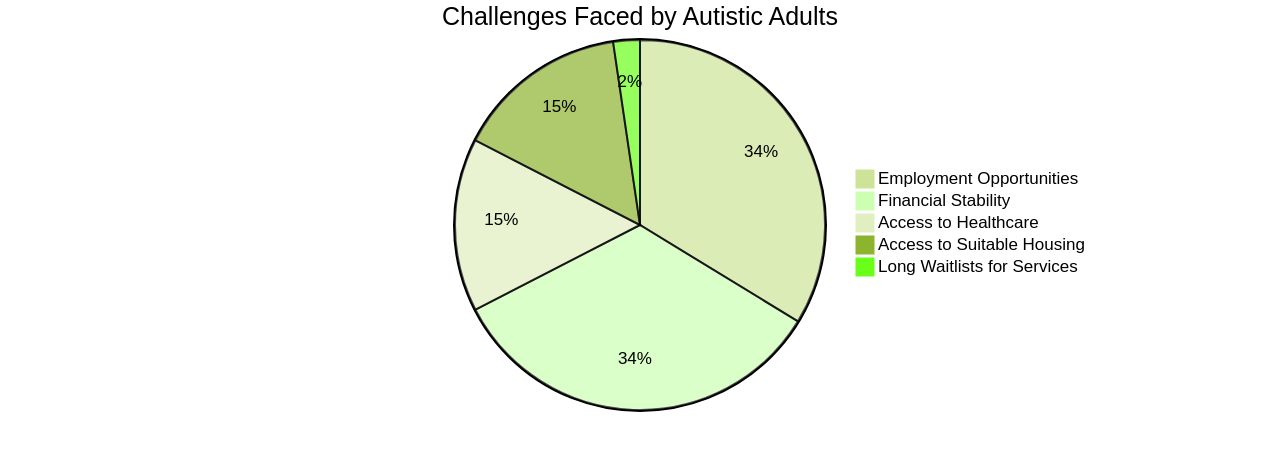
Eligibility Criteria for Housing Grants
Understanding the criteria for housing grants is a pivotal step in securing the right support for families in need. It's not just about meeting basic requirements; it's about recognizing the specific challenges and opportunities within the community.
Recent initiatives showcase the dynamic approaches to housing. For instance, HUD's research grants to universities aim to dissect the complexities of zoning and building codes, influencing housing availability and affordability.
These studies, like the one by Cornell University, delve into the effects of zoning in major cities, while Purdue University examines building codes as land-use restrictions. This research is crucial for informed policy-making, and for families, it underscores the importance of staying abreast of local housing reforms that may affect grant eligibility.
Moreover, the success stories of tailored housing solutions, like the specially adapted homes in Oxfordshire for adults with learning disabilities and autism, illustrate the potential of targeted grants and partnerships. These homes, part of a vision to help individuals live well within their communities, are a testament to the effectiveness of person-centered housing.
Such developments are made possible by investments like the Resonance Supported Homes Fund, which not only refurbishes properties to bespoke specifications but also enhances their energy efficiency. Eligibility for housing grants goes beyond income and age; it reflects a commitment to fostering connections and supporting diverse needs. Whether it's providing a home that accommodates disabilities or ensuring foster children have a place to call home, understanding these multifaceted criteria is essential. As highlighted by the Citizen Top-Up Grant, households are assessed based on a core family nucleus, emphasizing the importance of stability and support networks during the application and beyond. By recognizing the full spectrum of eligibility conditions, families can better prepare and position themselves to navigate the housing grant landscape with confidence.
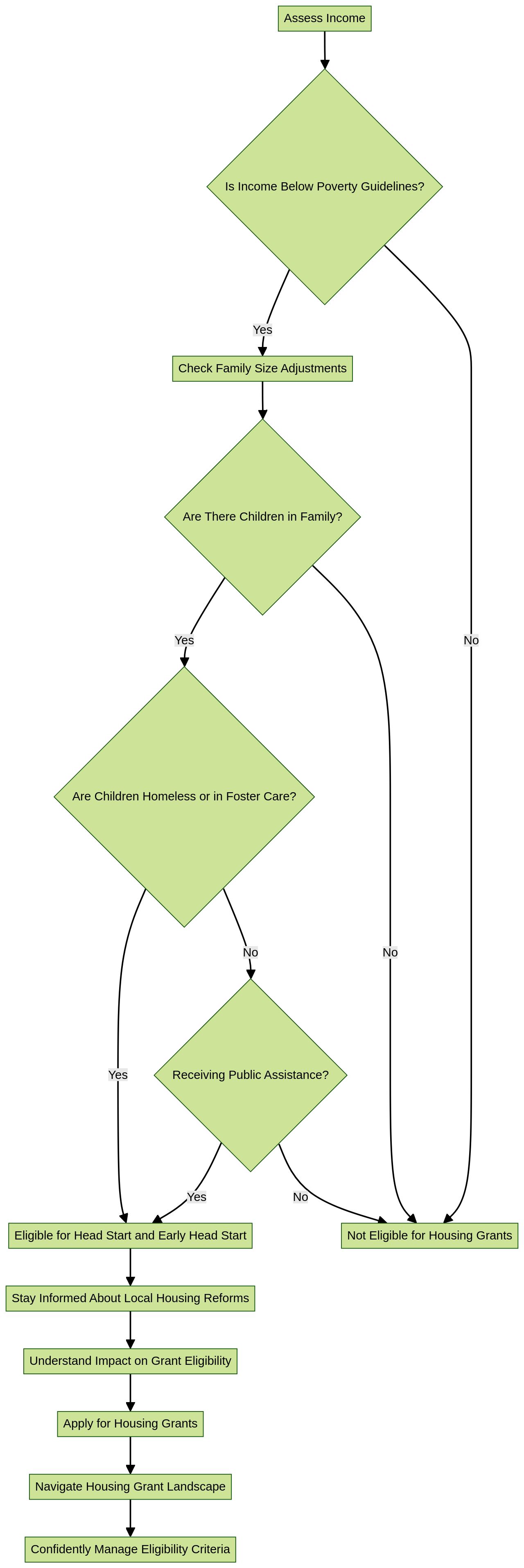
Applying for Housing Grants: A Step-by-Step Guide
When seeking housing grants, it's not just about filling out an application; it's about understanding the broader context of housing policies and innovations that could influence grant availability and criteria. For example, HUD's recent focus on the impact of zoning on housing supply points to the importance of staying informed about local reforms that could open up new grant opportunities.
Keeping abreast of research, such as the study funded by HUD at Cornell University, can provide insights into how urban planning decisions might affect housing grant programs. Families must also consider the different types of housing innovations that grants may support.
With HUD's emphasis on off-site construction as a means to make housing more affordable and resilient, applicants might explore grants that encourage these building technologies. The Innovative Housing Showcase, which presented such solutions, is a testament to the evolving landscape of housing grants.
Moreover, the availability of grant funds to study office-to-residential conversions since COVID-19 underscores the need for applicants to tailor their proposals to align with current research priorities and societal shifts. This could be particularly important for families looking to convert spaces into livable homes.
Applicants should take note of recent expansions to assistance programs, like the First-Time Homebuyer Assistance Program in Long Beach, which now offers increased grant amounts and broader eligibility. With applications processed on a first-come, first-served basis, timeliness and accuracy in submission are crucial. Additionally, understanding the income limits for affordable housing units, as in NYC, and the ability to apply without a SSN or ITIN, can make a significant difference in eligibility. Finally, successful grant applications often reflect a nuanced understanding of the community's needs and priorities. As evidenced by public feedback valuing pickleball courts over shelter expansion, aligning proposals with community interests can be vital. Therefore, families should thoroughly research and prepare their applications, considering the broader housing context, to maximize their chances of securing a grant that meets their specific needs.
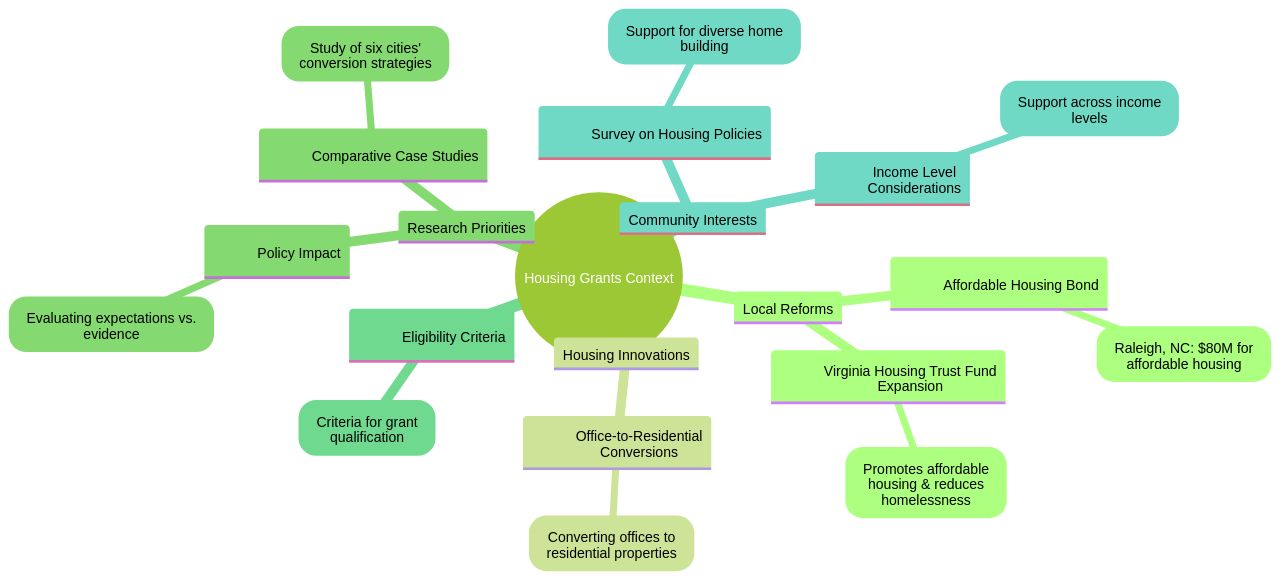
Reasonable Accommodations and Modifications for Autism-Friendly Housing
Fostering an autism-friendly living space is not just about comfort—it's about creating a supportive environment that allows individuals with autism to thrive. The Westchester County Fair Housing Law and the Federal Fair Housing Act empower families to request reasonable accommodations or modifications, which are essential in alleviating the symptoms of autism and providing a fair opportunity to enjoy their homes. These can range from reassigning parking spaces for better access to permitting assistance animals for emotional support.
In the face of a housing market that often presents barriers—such as a dearth of suitable units and discriminatory practices—federal initiatives are taking a stand. The U.S. Department of Housing and Urban Development is dedicating $212 million to the Section 811 Supportive Housing for Persons with Disabilities program, aiming to increase the supply of affordable, accessible housing. This financial boost is a beacon of hope, especially for low-income individuals with disabilities, illuminating the path to a more inclusive housing landscape.
Moreover, the Ada's integration mandate, as highlighted by the U.S. Department of Justice, underlines the necessity for services that enable people with disabilities to live in the most integrated setting. This is not just a legal requirement but a commitment to the dignity and independence of every individual. By being informed about these rights and resources, families can confidently navigate the process of making their homes autism-friendly, ensuring their loved ones can live with independence and dignity.
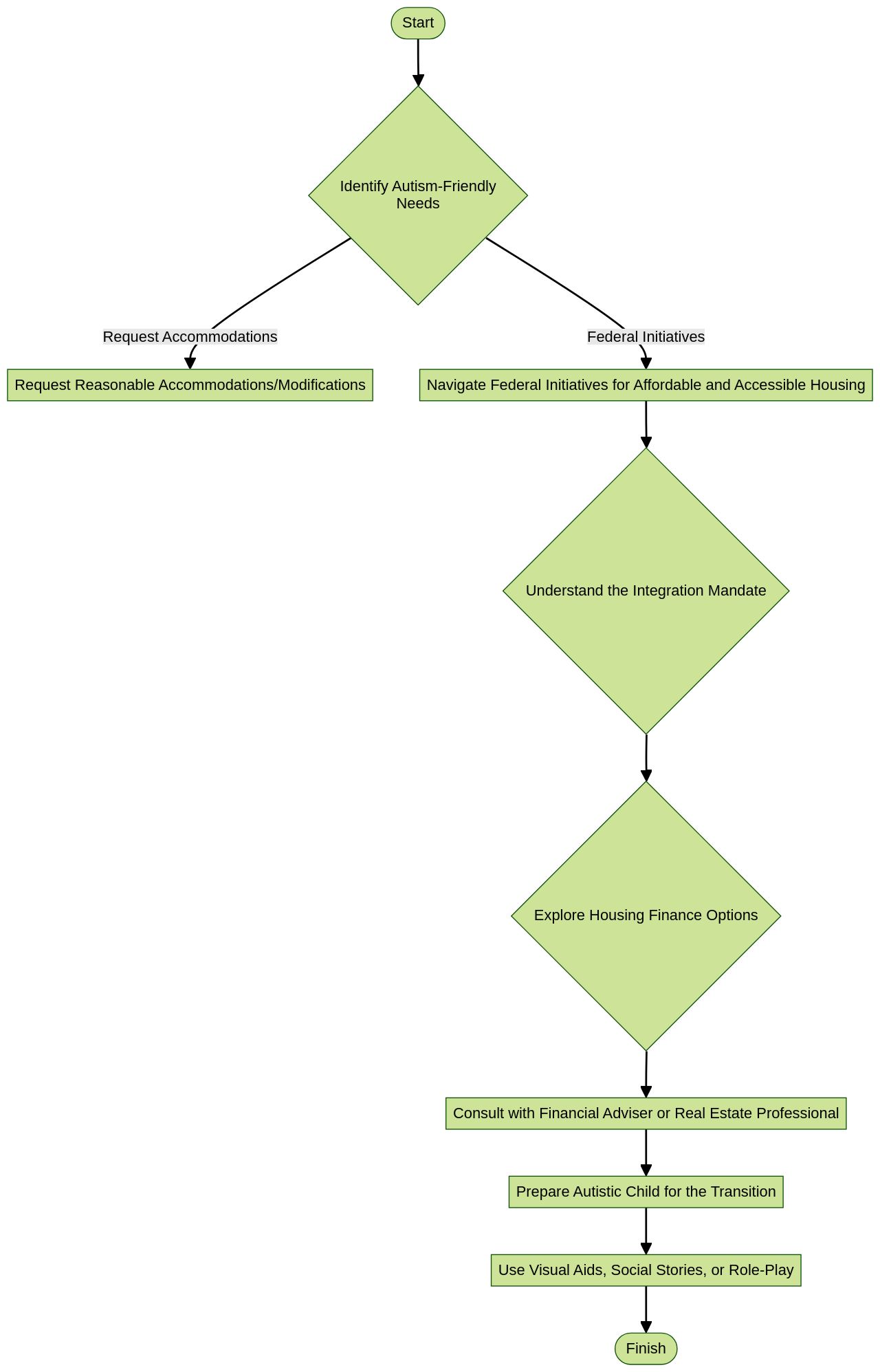
Financial Resources for Renting and Buying a Home
Navigating the financial landscape for housing can be challenging, particularly for families with unique needs. Fortunately, there are avenues such as the Low-Income Housing Tax Credit (LIHTC) and down payment assistance programs that can provide critical help.
These programs are part of a broader effort by the Treasury Department to increase affordable housing supply and security for all Americans. For instance, the updated guidance for the State and Local Fiscal Recovery Funds (SLFRF) program is set to drive investments to create and improve affordable housing stock, while the Emergency Rental Assistance (ERA) program clarifies that funds can be used for a wide range of affordable housing services for very low-income families.
Additionally, the Federal Financing Bank (FFB) has extended financing support for a risk-sharing initiative to reduce the cost of creating and preserving affordable housing. For individuals with disabilities, the need for accessible housing is acute.
Supports such as caregivers or In-Home Supportive Services (IHSS) can enable many to live independently. Yet, in rural areas, challenges like proximity to supportive services can be a barrier. Subsidization of housing modifications and improvements in the auditing of discriminatory practices are essential steps toward making housing more accessible. These actions are all part of a concerted effort to bolster housing supply and address the needs of diverse populations, including those with disabilities, the elderly, and low-income families.
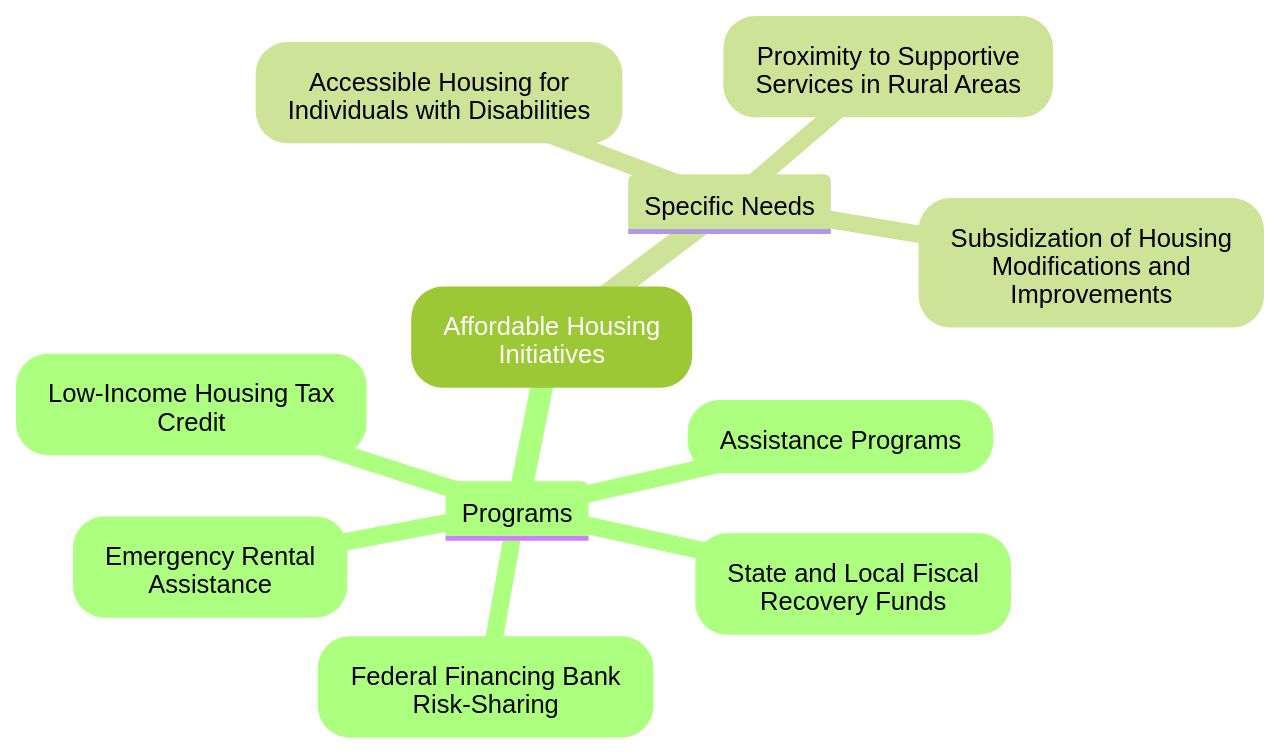
Conclusion
In conclusion, housing grants are crucial for families with autistic children, providing specialized care and addressing the shortage of suitable options. These grants empower individuals with autism to lead fulfilling lives by fostering connections within their communities. Understanding eligibility criteria is essential when seeking housing grants.
Staying informed about local reforms enhances the chances of securing grants that meet specific needs. When applying for housing grants, consider the broader context of policies and innovations. Timeliness and accuracy in submission are key, along with aligning proposals with community interests.
Reasonable accommodations and modifications are vital for creating autism-friendly living spaces. Federal initiatives aim to increase accessible housing supply. Navigating the financial landscape can be challenging, but resources like LIHTC and down payment assistance programs provide critical help.
Efforts to improve affordability are underway. Overall, by leveraging grants, understanding eligibility criteria, applying strategically, making accommodations, and accessing financial resources, families can navigate challenges confidently. These efforts secure suitable living spaces and empower individuals with autism to thrive within their communities.




